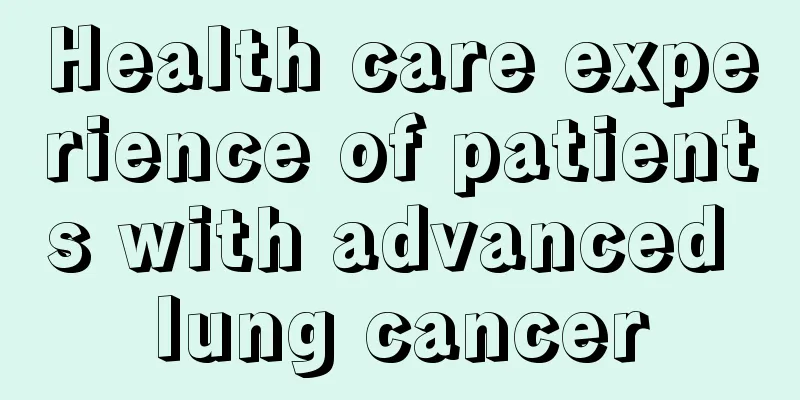In what situations can you not take a hot spring bath

|
The weather is relatively dry in winter and autumn. Soaking in hot springs can relieve your dry and itchy skin. Hot springs can moisturize the skin, promote blood circulation in the skin, and speed up our body's metabolism. For patients with rheumatism, neuralgia, or certain skin diseases, frequent hot spring bathing can promote recovery. However, not everyone can soak in hot springs. Some people cannot soak in hot springs. People who should not take a hot spring bath: cancer and leukemia patients (it will stimulate metabolism and cause the body to weaken faster). Except those who have undergone surgical removal or cure. Patients with acute illnesses, such as acute pneumonia, bronchitis, tonsillitis, otitis media, especially those with fever. Tuberculosis and patients with tuberculous disease. Patients with infectious diseases such as typhoid fever, dysentery, and influenza. When people suffer from acute diseases such as tonsillitis, fever, and colds, the body's resistance decreases and symptoms of chills and fever appear. At this time, if a patient with fever is placed in a hot spring with high temperature and humidity, the narrow space and poor air circulation in the hot spring room will accelerate the evaporation of water in the patient's body, which can easily cause adverse reactions such as dehydration, hypoxia, worsening cough and even difficulty breathing. If the patient suddenly encounters cold air after getting out of the bath, the cold will be aggravated. Patients with sexually transmitted diseases such as syphilis and gonorrhea. Malnourished people. Those who are extremely weak. People with severe eczema, dermatitis and skin ulcers. The sulfur and other acidic and alkaline substances contained in hot springs can reduce inflammation and kill bacteria, and are very effective for general infectious or parasitic skin diseases. However, they can sometimes irritate the skin, worsen wounds, and even cause "hot spring skin disease." Therefore, some patients with skin diseases should not take a hot spring bath. For people suffering from eczema, atopic dermatitis, etc., soaking in hot water for too long can easily aggravate the symptoms due to accelerated evaporation of skin moisture and damage to the skin's protective layer. It should be noted that hot springs cannot be soaked for a long time. If men choose to soak in hot springs for too long, it will easily lead to a decline in sperm quality. Middle-aged and elderly people over 50 years old should not soak in hot springs for too long, otherwise it will easily affect the heart and gastrointestinal digestive function. Generally speaking, it is best to maintain a continuous hot spring bathing time of about 20 minutes at a time, and the total hot spring bathing time per day should not exceed 80 minutes. |
<<: What to do if you feel dizzy after taking a hot spring bath
>>: What are the medicinal values of donkey-hide gelatin
Recommend
What are the main symptoms of late stage breast cancer?
The symptoms of breast cancer in the early stage ...
How to store peeled pineapple
Fruits are a safe choice in our lives because the...
How to treat pain in the right back of the head?
People will experience headaches and fatigue afte...
Do cherry tomatoes cause internal heat? What are their nutritional values?
Cherry tomatoes are not only vegetables in life, ...
What symptoms should you pay attention to in preventing lung cancer? If you have the five major symptoms, be careful of lung cancer
Lung cancer is a malignant tumor that occurs in t...
What kind of care is needed for bile duct cancer
What kind of care is needed for patients with bil...
Can the wood of the fenshi wood and wolfberry be soaked in water and drunk together?
Many people may not know about the fenxin wood. I...
I always wake up at night, take some oryzanol
Oryzanol exists in many vegetable oils, such as c...
What to do if your hands are allergic to laundry detergent
Laundry detergent is a common cleaning item in th...
Will renal hamartoma lead to poor appetite? A detailed discussion of several effects of renal hamartoma
Renal hamartoma is a benign tumor that often occu...
What muscles do squats train
Squat is a common fitness method, also called ful...
What are the effects of selenium-gold oysters
Selenium-gold oyster can be said to be a medicine...
The most effective treatment for breast cancer 4 treatments for breast cancer
Breast cancer is a malignant tumor with a high in...
Are apples cold in nature?
People say, an apple a day keeps the doctor away....
How to treat stage 1 primary liver cancer? Introduction to the treatment methods of primary liver cancer
The best treatment for primary liver cancer is to...









